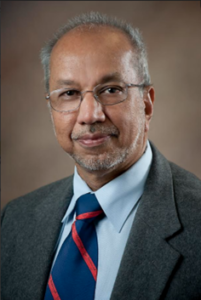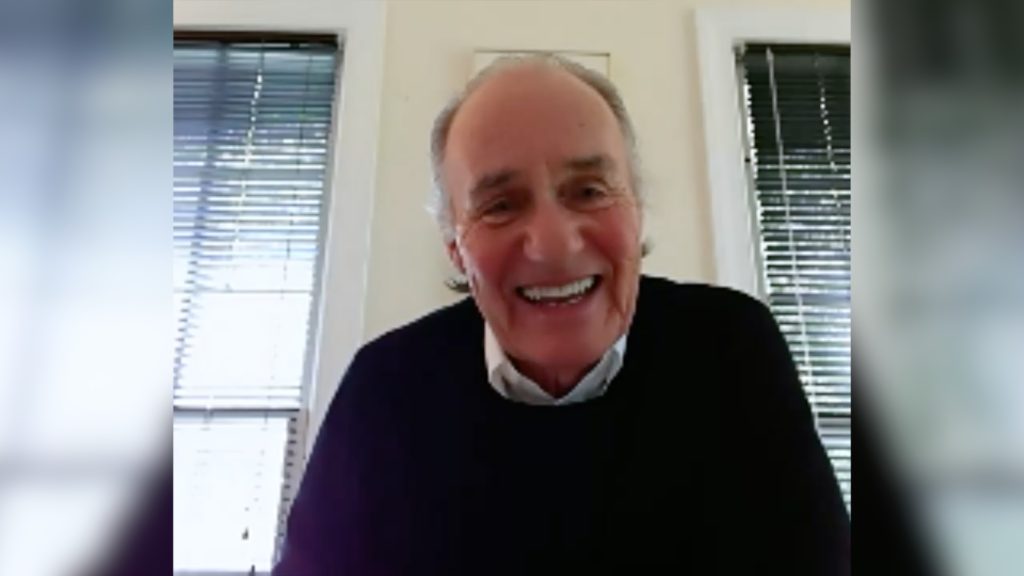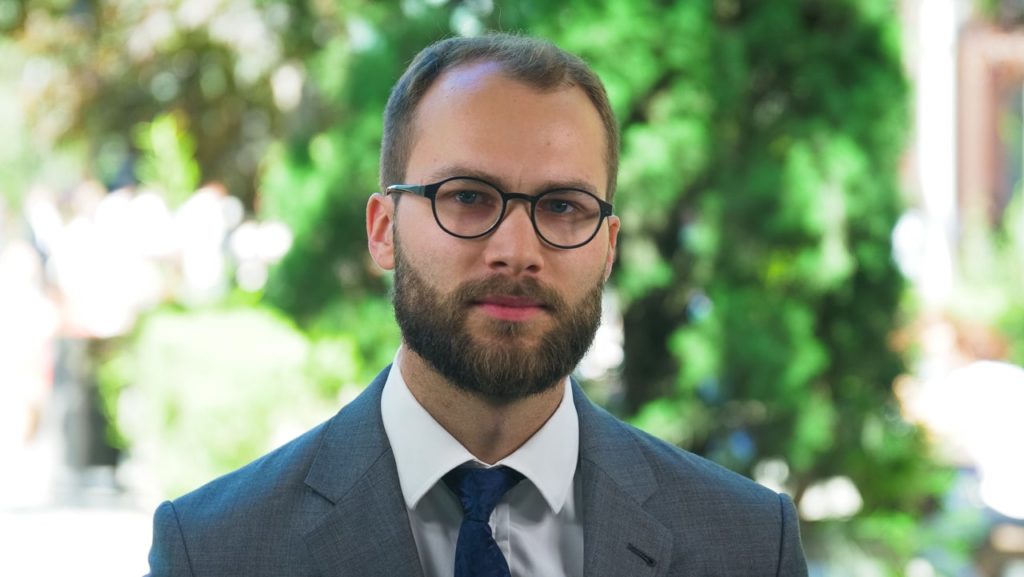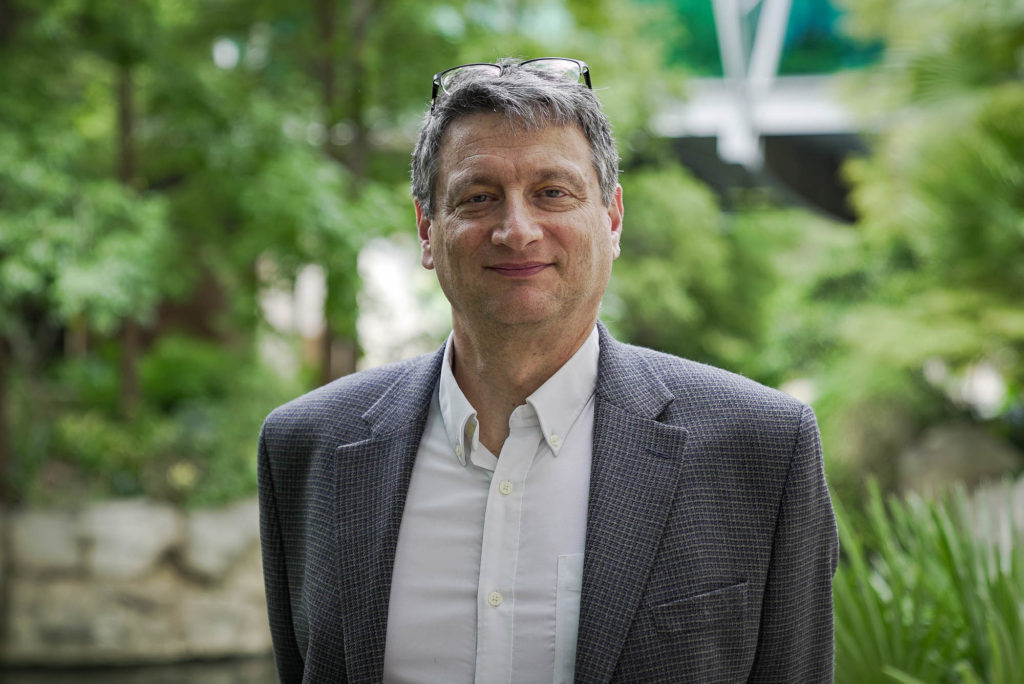 In this interview, Professor Juzar Ali, MD, FRCP(C), FCCP, a leading expert in respiratory medicine and LSU Alumni Klein Professor Emeritus of Medicine at Louisiana State University (LSU) Health Sciences Center in New Orleans, LA, USA, reflects on his distinguished career specializing in tuberculosis (TB), non-tuberculous mycobacterial disease (NTM) and bronchiectasis. Professor Ali’s journey began with his residency in New Orleans, before he returned to Pakistan, where he dedicated himself to treating communities with limited healthcare resources and to breaking the stigma associated with TB. Over the years, he has witnessed the resurgence of TB in the USA, driven by factors such as HIV co-infection, and has worked tirelessly to raise awareness of these diseases through academic initiatives and research.
In this interview, Professor Juzar Ali, MD, FRCP(C), FCCP, a leading expert in respiratory medicine and LSU Alumni Klein Professor Emeritus of Medicine at Louisiana State University (LSU) Health Sciences Center in New Orleans, LA, USA, reflects on his distinguished career specializing in tuberculosis (TB), non-tuberculous mycobacterial disease (NTM) and bronchiectasis. Professor Ali’s journey began with his residency in New Orleans, before he returned to Pakistan, where he dedicated himself to treating communities with limited healthcare resources and to breaking the stigma associated with TB. Over the years, he has witnessed the resurgence of TB in the USA, driven by factors such as HIV co-infection, and has worked tirelessly to raise awareness of these diseases through academic initiatives and research.
In addition, Professor Ali discusses the significant advances in TB and NTM treatment, particularly the development of faster diagnostics and more effective, patient-friendly therapies. Reflecting on his career, he emphasizes the importance of multi-disciplinary care and the ongoing need for education and research in the field. His advice to aspiring pulmonologists highlights the value of passion and perseverance, along with the critical need for coordinated care in tackling the complex challenges of respiratory diseases.
Q. What motivated or inspired you to specialize in respiratory medicine, and more specifically TB and NTM disease and bronchiectasis?
The importance of all subspecialties notwithstanding, my perspective in choosing pulmonary medicine was its broad impact. The in-patient and outpatient disease domains in general pulmonary medicine and intensive critical care, no matter where in the world one practices, appealed to me. When I was completing my residency in New Orleans and planning to return to my home country Pakistan, I knew that pulmonary medicine and its overlap with general medicine, critical care and infectious disease was much more intertwined than any other field. After all, 30% of patients that a general practitioner sees in his or her practice throughout the world have some respiratory symptoms and problems. So it was the need, the potential impact and a genuine interest that drove me to the respiratory medicine specialty. The admixture of practice of acute and chronic pulmonary medicine at the grass roots level merged with specialized care in this field where infectious disease, general pulmonary medicine and multi-organ critical care work in synergy for patient care was in consonance with my personal mission. Moving forward, it would be impossible to separate TB from respiratory diseases specialties. When I went back to Pakistan and entered a so-called TB ward where few wanted to go or work because of the stigma, I found that whereas TB was predominant, many lay there with other potential diagnoses, such as other non-TB infections, lung cancer, etc. Serving these patients from an underserved community with limited resources was challenging and yet rewarding and matching with my mission
Fast forward back to the USA after 10 years of academic and clinical practice in Pakistan, I found that TB has resurged in the USA, due to HIV co-infection and other factors. Yet, medical students were graduating without any exposure to or awareness of the disease. That created a nidus for academic teaching and research and programs of medical education. I was able to develop such programs with National Institutes of Health (NIH), the Wetmore Foundation and other funding at LSU New Orleans. As the academic environment evolved, peri- and post-TB disease patterns in the form of non–TB mycobacterial infection, not only in HIV-positive populations but also in the general population, were seen with increased awareness. The underlying pathology of bronchiectasis created the perfect clinical troika inspiring my academic and research interest. That is where I have focused in the last decade and continue to do so in my new role, as it also attends to the unrecognized and disenfranchised population in all parts of the world, including the USA.
Q. How have your academic/teaching roles shaped your career and what achievements have you been most proud of?
My academic and teaching roles started as an intern and blossomed as I progressed in my career. Establishing and developing curriculum and teaching modalities in Pakistan in the 80’s and in other countries across the globe subsequently and then culminating through the tenure at Louisiana Health Sciences School of Medicine has been a very rewarding journey. The acknowledgment by a medical student, years after graduation, of my teaching impact, and establishing site- and country-specific modalities of learning respiratory medicine are moments of pride I have. Creating a team, and then letting their careers grow while being there for them as a resource is the greatest professional achievement one can hope for. This sets up a foundational and transformative pathway for others.
Q. Reflecting on your career, what have been the most exciting advances in the treatment of TB and NTM disease? What have been your personal favorite achievements in this field?
TB, a treatable, controllable, curable disease remains a continued world-wide problem. That is a matter of shame we all bear. It is a nemesis that national leaders, politicians, healthcare teams, researchers and societal leaders, pharmaceutical industries and public health gurus must acknowledge and for which we must all share the blame. Yet, the most exciting advance in the field of TB is the development of improved and faster diagnostics, safe, shortened effective treatment protocols which are more patient friendly, tolerable and more readily available and could be accessible world-wide. The increased awareness of the importance of post-TB and non-TB mycobacterial disease has been impactful in developing collaboration between academia, research, public health and industry. Having said that, while much has been done, a lot more needs to be done; there is no excuse not to do so.
On a personal and professional level, my efforts have been to increase awareness of NTM, not just to treat TB in isolation as a separate problem in some closeted, isolated TB clinic, but as a comprehensive multi-disciplinary care unit and with a thematic “close the loop of care and connect the dots” concept beyond the DOTS (Direct Observed Therapy Strategy) of TB. This has been a personal favorite and focus, with grants from organizations (including the Wetmore Foundation) facilitating access to services for populations that are disenfranchised, underserved, uninsured or underinsured.
Q. Do you have any advice for young, aspiring pulmonologists and what do you want your legacy to be?
Legacy: a difficult word to wrap one’s head around. It is so deceptive and can be self-promoting if not taken in its true sense. Legacy is not what you think you leave behind, but what others see left behind on the sands of time. The practice of medicine through the world will continue to change, dictated by developing science, research and more “re-search”, improving possibly through the maturation of artificial intelligence tools. However, the true meaning of medicine and a physician who practices medicine in whatever field, and respiratory medicine specially, needs to be protected and honored while we advance in our expertise.
The care of a patient in intensive care does not and should not end there, but needs to continue through the health journey of a patient. The management of disease and health requires that we extend expertise through preventive, curative and specialized multi-disciplinary coordinated care, beyond the hallowed halls of academia or elitist venues, through community-based programs, home and work-places, meeting the medical needs of the patient as best as possible. Care coordination through and with various specialties is so much needed to close the loop of care. That should be the focus of the young aspiring physician, pulmonologist included.
My summary thoughts: light a candle of growth and improvement for another colleague as you move forward in your career. Do your best in the small onion of influence, peeling off one layer of a hurdle at a time. Keep your passion:cynicism ratio very high. At this stage of my career, I believe that a true physician, teacher, or mentor never retires, but just rides away in the sunset.
More information:
- LSU Health New Orleans. Faculty: Juzar Ali. Available at: https://www.medschool.lsuhsc.edu/DOM/Sections/Pulmonary-CC/faculty/ali_juzar.aspx (accessed 26 March 2025).
- Juzar Ali. The Perpetual Migrant: Finding My Way from Abundance in Poverty to Poverty of Abundance. Conneaut Lake: Page Publishing, Inc, 2020.
Citation: Juzar Ali. Reflecting on a Legacy in Respiratory Medicine: Professor Juzar Ali’s Journey in Tuberculosis, Nontuberculous Mycobacterial Disease, and Pulmonary Care. touchRESPIRATORY. 27 March 2025.
Disclosures: This short article was prepared by touchRESPIRATORY in collaboration with Prof Ali. No fees or funding were associated with its publication.
Register now to receive the touchRESPIRATORY newsletter!
Don’t miss out on hearing about our latest peer reviewed articles, expert opinions, conference news, podcasts and more.









